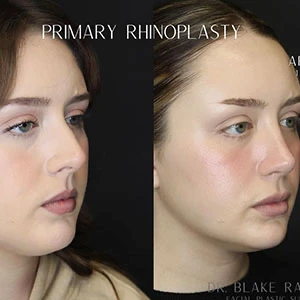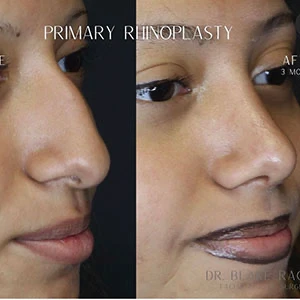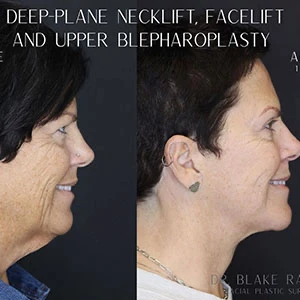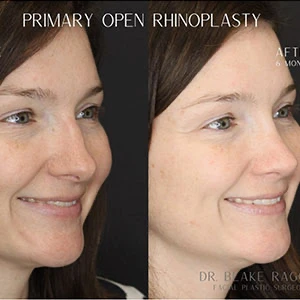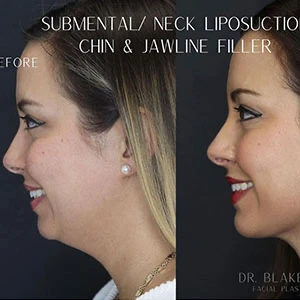
Published on January 2024
The Anatomy of Facial Aging-What’s Happening to My Face?
In last month’s article, I discussed the ins and outs of the “Facelift,” a popular cosmetic procedure used to reverse the signs of aging in the mid-face. This month I will discuss the nuances of a “Necklift,” a similarly powerful procedure used to rejuvenate the neck and jawline.
What is a “neck lift”?
The term “neck lift” describes a surgical procedure used to correct age-related neck changes. In a successful Necklift, redundant skin is excised, lax muscles are tightened, and excess neck fat is debulked. More experienced surgeons may implement additional techniques to improve neck contour, which may include chin/jawline augmentation, gland reduction, or additional muscle trimming. Ultimately these techniques used either alone or in combination, create a dramatically more rejuvenated appearance to the neck.
What is the downtime from a Necklift?
Contrary to public belief, recovery from a neck lift is generally well tolerated. Patients can expect “social downtime,” meaning the time it takes to be presentable in public, to last anywhere from 2-4 weeks. During this time, it is normal to expect bruising, swelling, numbness, and some mild discomfort.
What are the different types of “neck lifts”?
The Necklift has evolved tremendously from its initial description wherein only redundant skin was removed, often creating the unsightly “pulled” look associated with such antiquated procedures. Now that we have a better understanding of the neck-related aging process, more comprehensive treatment options are available to address the underlying issues at hand.
To that effect, several types of Necklift variations exist today, which can vary based on their incision requirements (behind the ear, and/or under the chin) and the underlying layers being treated (e.g., skin, fat, muscle, glands). Ultimately, the best thing you can do is to ask your surgeon how he plans to address each of your underlying problem areas as alluded to above, including redundant skin, loose muscle, excess fat, bulging submandibular glands, and/or poor jawline definition. Ultimately, every patient is different, and every surgeon is different, so find someone whom you trust to deliver results consistent with your goals and expectations.
Are there non-surgical alternatives to a Necklift?
Yes and No. While several non-surgical options for neck rejuvenation exist, such as injectables (e.g., Botox, fillers, Kybella), lasers (e.g., CO2, IPL), threads, and energy-
based devices (e.g., radiofrequency, ultrasound), such options often require multiple treatments and are associated with relatively unpredictable, temporary, and limited results. So, while non-surgical alternatives do exist; however, they each have inherent limitations and should never be considered as an equal replacement to a surgical Necklift.
Who is a good candidate for a surgical Necklift?
Men and women of any age who suffer from age-related neck changes would benefit from a Necklift, though for most people this represents their 40s to 50s. Ultimately, a detailed assessment of your underlying anatomy is required to determine if a Necklift coincides with your aesthetic goals and expectations.
What is the cost of a Necklift?
The total out-the-door cost of a Necklift varies considerably ($4,000 plus) and will be based on your surgeon’s pricing, facility fees, and anesthesia charges. Of note, the surgery is typically performed in an outpatient setting under general anesthesia (you are asleep) and lasts anywhere from 2-4 hours, depending on the extent of your surgery.
How can I learn more about a neck lift? If you want to learn more about a neck lift, I suggest consulting with a surgeon experienced in facial rejuvenation surgery. This will ensure that you receive a comprehensive assessment and treatment plan. As a Board-Certified Facial Plastic Surgeon, I always encourage my patients to understand the treatment options available to them before deciding on their plan of action, as oftentimes, a combination of surgical and non-surgical options represents the best option.
Lastly, choose a surgeon whom you trust.
There are few things more important than
your relationship with your doctor.
In Good Health,
Blake Raggio, M.D
Double Board Certified Facial Plastic Surgeon
